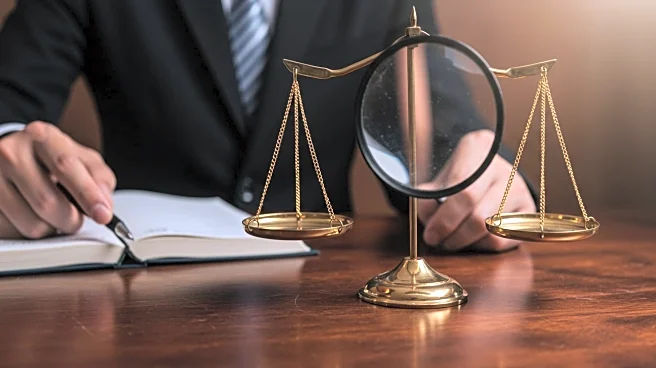What's Happening?
Belgian publishers and authors have successfully obtained a court order from the Brussels Business Court to block access to five major piracy sites. This legal action targets sites such as Anna's Archive, LibGen, OceanofPDF, Z-Library, and the Internet Archive's Open Library. The order mandates Internet service providers, search engines, DNS resolvers, advertisers, domain name services, content delivery networks, and hosting companies to restrict access to these sites. The initiative was led by seven organizations, including the Flemish Publishers Association, the Association of Belgian Publishers, and the Association of Flemish Authors. Niels Famaey, director of the Flemish Publishers Association, highlighted the ongoing challenge of piracy, exacerbated by major AI companies using pirated content to train generative AI models.
Why It's Important?
The court order represents a significant step in the fight against digital piracy, which poses a substantial threat to the publishing industry. By blocking access to piracy sites, Belgian publishers aim to protect their intellectual property and ensure fair compensation for their works. The involvement of major tech companies in using pirated content for AI training underscores the broader issue of copyright infringement in the digital age. This legal action sends a strong message to tech companies about the importance of respecting copyright laws and the rights of content creators.
What's Next?
The court order is primarily symbolic but sets a precedent for future actions against piracy. Belgian publishers are likely to continue advocating for stricter enforcement of copyright laws and greater accountability from tech companies. The focus will remain on urging Internet service providers and other stakeholders to block access to piracy sites. Additionally, publishers may push for more comprehensive regulations at the European Union level to address the use of copyrighted content by AI systems.
Beyond the Headlines
The legal battle against piracy highlights the ethical and legal challenges posed by the intersection of technology and intellectual property rights. As AI systems increasingly rely on copyrighted content, the publishing industry faces the dilemma of balancing innovation with the protection of creators' rights. This case may prompt broader discussions on the ethical use of AI and the need for transparent and fair compensation models for content creators.











